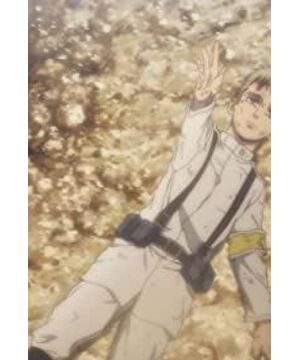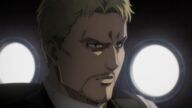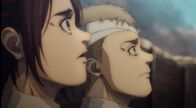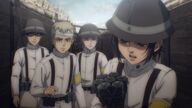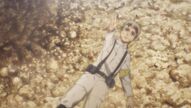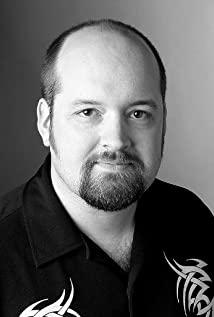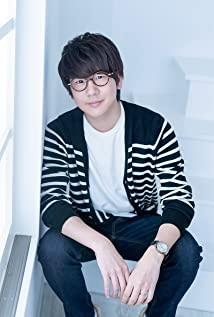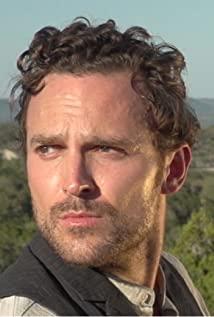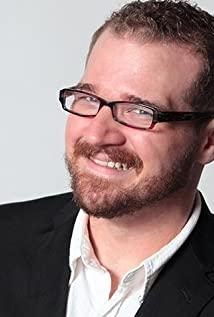Don't give a score (although it should be five stars anyway), just comment on the plot.
I believe everyone has seen the video of the YouTuber soul about Allen and Reiner (the one who has not seen the guide B station BV124411F75R). In that video, he defined coins as [why do people fight with each other], coins The two sides of the coin are [reasons for both sides to continue fighting], but viewers who have watched the video should be able to feel that the two sides of the coin not only refer to the continuous cycle of battle itself, but also to the representation of the battle—the two in opposing camps. A leading actor, Ellen and Reiner. In the video, Soul listed a lot of similarities between the two of Islay from their personalities to their life trajectories: they have innate ideals and a willingness to fight, they can give up their lives and conscience for ideals, and they both have a tendency to expel people from the opposing camp. , are taking the initiative to take that step that cannot be turned back. But are Allen and Reiner really similar? Behind the delicate surface symmetry, are they really similar backgrounds and motivations that drive their similar behaviors? Are Allen's four lines in the basement, "We are the same," a statement of truth, or a self-consolation to the crime that is about to be committed? In the final battle before Earth Singing, Reiner's monologue to Allen, is it the resonance of people in the same way, or is he projecting his suicidal tendency to Allen's self-serving? I think Soul's video is a very clear interpretation of the neat and amazing symmetry of the symmetry maniac Isayama, so in this article I want to talk about Alan and Reiner under symmetry, those or the exact opposite, or something unrelated.
Take the initiative to take a step that cannot be turned back
In 845, on the island of Parady, Reiner still chose to continue the plan to recapture the ancestors and break the wall of Maria despite losing his teammates; nine years later, Reberio, despite the opposition of the legion and friends, Ai Lun still chooses to attack, the first step in his plan to destroy the world.
They are both active choices, but they face completely different situations. The biggest difference is knowledge. Reiner was ignorant when he made his choice, he had no idea about the real purpose of the Marais' top management coveting the island's resources, he really believed that the people on the island were literal demons, and their existence was a real threat When the world is safe, he doesn't know what kind of line he's crossing when he takes that step that he can't turn back. Unlike Allen, he was aware. When he crossed that line, he clearly knew what he had chosen and what he had given up. Ignorance is the furthest thing from freedom, and only the latter is a choice based on free will, and therefore requires full responsibility for one's actions.
But in later stories, Reiner also made his choice. By the year 850, Reiner had lived in the wall for five years, and trained with his fellow students for three years, and decided to break the wall again. At this time, he already knew clearly that the wall was not a demon, although he still said The demon nation comforts itself, but in the giant wood forest, his words to Bet, "What does it matter, short-lived ghosts like us, who can understand us except each other" is his true self-confidence. Know. He has long known that he is not a hero and that he is not carrying out a glorious mission, but between "human conscience" and "loyalty to the motherland", he finally chose the latter. This time, it was a choice based on free will .
104 calls Reiner a traitor, which is actually quite dark and humorous, because throughout the whole play, he is probably the most loyal person to the camp of his allegiance. His sin is not betrayal, but loyalty. Reiner was loyal to Marai when he was a child because: the demons on the island threaten the safety of the whole world - destroying the demons can save the world and liberate the Ai people on the mainland - he will become a hero and win everyone's respect. In short, one is peace in the world, the other is national liberation, and the third is self-realization, and his purpose is the same as (he thought) Marais. When he grew up, Reiner obviously realized that this was a big lie. The world was not peaceful because Marais, a militaristic country, was ruthless. The Ai people were oppressed because Marais invaded other countries with giants and caused hatred from all over the world. He couldn't be a hero because He stood on the side of the invaders for the tiger. However, even after knowing the truth of the world, he still couldn't betray Marais, which means that his loyalty is not only the result of brainwashing by militaristic education, he really values loyalty over human conscience The kind of guy whose militaristic education only made him think he was saving the world, but he couldn't stop his mission even when he realized he was committing an unforgivable crime. He could torture himself to death in pain and guilt, but he just couldn't make the right choice in his conscience. In the basement, he begged Allen to kill him, probably not only to repent of his past crimes, but also to know clearly that as long as he still had a breath, he could not help but be Marley's accomplice.
I have always felt that the core of the tragic aesthetic and value conflict of the story of the giant lies in the Eldia of Marais, and Reiner is the embodiment of it, he represents a split of identity, he is both Marais and not Marais, both Eldian and not Eldian, he cannot belong to either of these two identities. For the Ai people outside the wall, even if they don't listen to the political propaganda of the demons on the island, there is no reason to have a good impression of the Ai people on the island. The 145th generation king took a group of people to hide in the wall, and abandoned the rest on the mainland. For the Ai people outside the wall, it was the nation and the country that abandoned them first, leaving them on the mainland to be abused by other nations. , the monarch is disqualified first, how can the remnants be loyal? The Ai people outside the wall are the Ai people who were abandoned by the Ai people. They can't be a decent Eldia, nor can they become a real Marai. Loyalty to the country/nation is based on identity, and there is no natural identity of the Ai outside the wall, and there is no natural object of allegiance. That's why, although I don't agree with choosing loyalty between conscience and loyalty, I can understand Reiner's choice. Because on the surface it appears to be a choice based on free will, but in fact he has no choice at all. In all camps, there is no camp of his from the beginning to the end. It is not that loyalty to Marais cannot achieve his ideal, but that no camp can achieve his ideal. Since it is destined to die as a sinner, it is best to be loyal. Yi Ning die unyielding.
That's why I'm very angry with Allen after Reberio. Allen could have extended an olive branch to the people who were abandoned by the 145th king, but he raised the butcher's knife. The act of tying the entire country to chariots and massacring the blood-linked compatriots on the other side of the sea is no different from the greedy and stupid high-level generals in the Marais who try to divert conflicts through war. The big man in the historical cycle of killing each other leaves the little man in it with no choice.
big and small
big shot
Power and power are different, and those who have power do not necessarily have power. Although Yumir Fritz has almost unlimited power, she was a slave of King Fritz before her death, and after her death, she was trapped in the road to build a giant, and she was still a slave. This is only power but no power.
Aaron and Reiner both possess the power of giant power, but they have completely different powers. In the eyes of the Marais, the members of the warrior team are basically circus beasts. They have no say in strategic deployment and can only execute the orders of their superiors. The situation faced by Allen is quite different. After Maria was taken back, the old people of the Survey Corps died completely, and 104 successfully filled the top of the Corps (Isayama, you can do it, if the protagonists of other comics suddenly gather together The promotion will definitely be criticized as fake, but the giants are different, and the seniors will die directly. The top of the protagonist group is quite logical.) Considering that Heath is a puppet queen, the island is essentially a political ecology of a military government, which means that Ellen In the three-way force of the national government, there is a direct line of troops that are all friends and relatives. In addition, Maria regained him and became a hero in the eyes of the people. His political views have a decisive influence on the island. Even without the power of the ancestor, he There is still the power to decide key issues and affect the destiny of the country.
The setting of the power of the ancestors has a strong symbolic meaning. All the Eldia people are connected by roads. After the death of the host, the nine giants will choose a newborn baby as a new host, implying that the power of giants is a gift left by the ancestor Yumir to the entire Eldia nation. The power of the ancestors is the public power belonging to the whole nation. If you look at it this way, then Allen's command of Grisha to grab the ancestor from the Reis family means stealing public instruments, usurping public power by cruel means, and exercising public power for private wishes (to be free). After the no-war pact was signed, two people needed to cooperate to launch the ancestor, like a certain restriction mechanism, but Allen bypassed this restriction and successfully monopolized the power of the ancestor. This can't help but remind me that in 1933 that person also became the chancellor by bypassing the election campaign, and the Weimar Republic has survived in name since then. After all, the system failed to trap the beast. Therefore, the appearance of all beings on the island before and after the launch of Diming is not so much a criticism of narrow nationalism, but a question of whether it is the bottom-up extreme fanaticism that kidnapped the entire country, or the top-down guidance caused the country to fall into Invincible?
little people
Reiner felt that he lacked strength from a young age, so he learned to use strength as he grew up. Although everyone laughed at him as a foolish giant, Reiner's several negotiations in the play, the analysis of the pros and cons, and the people's dishes, all had to make people sigh as a genius.
For example, when he broke the wall and killed Marco twice, Reiner successfully forced Ani to do something he didn't want to do several times, but Ani had nothing to do with him except beat him up. Ani's weakness is her father. With Ani's character, she will never talk about her family with Lebe, much less show her love and miss for her father in front of them. However, Reiner knows that this can only be He had observed it in Marais. It was quite scary, when he was not yet twelve years old, he would pay attention to the background of other prospective students, in case it would be useful in the future.
The jungle negotiation is even more clever to win over Yumir. It is not difficult to notice that Yumir cares about the Hiss, but the reason why he can win the trust of Yumir is precisely because the soldier-like Reiner likes Christa. This is Yumir. Knowing that, Reiner of the warrior personality very naturally used the soldier's own sincere love as a bargaining chip, coupled with Marai's overwhelming strength situation on Pa Island, to guide Yumir to choose a more favorable position.
Reiner's leverage should be the product of Marais' high-pressure politics. Although there is no positive display in the comics, it is estimated that his mother is the kind of mother who will use the story of paradise to scare children to ensure that Reiner is absolutely loyal to Marais and will not bring disaster to the family. Reiner has been very cautious in her words since she was a child It also proves this from the side (Polke, Bett, and Ani all said things that were not so politically correct for Marais). At the same time, Reiner was able to recite a very smooth set of political propaganda since he was a child. When someone bullied him, he recited this set of absolute political correctness and obtained protection by appealing to authority, which made him feel authoritative to him. can be beneficial. Therefore, Reiner developed an attitude of respect and fear of authority from a young age. I think this is probably another reason for his unshakable loyalty. He was trained as Pavlov's dog. Lose the courage to rebel against authority.
I don't know if anyone noticed how Reiner persuaded not to quarrel/fight with Allen or others, "If you do this again, you may not be able to get into the military police." Even on the island, where the containment area where even the hair on his buttocks is subject to censorship is thousands of miles away, he still resorts to authority and prudence in conditioned reflex. This is probably the persecution of people by political coercion. Be sad.
(The only two times Reiner's sincerity was given to Bette and Falco, who asked him the same question, is 13 years really acceptable. When Bette asked, 9-year-old Reiner was proud Although his answer was a bit short, he was a hero every day in the past thirteen years. After twelve years, an equally gentle and tolerant child asked him the same question as his dead friend back then. Answer, what is in his heart.)
expulsion
Allen and Reiner both expelled the opposing faction at the very beginning of the story, but for different reasons.
Allen arguably had an innate habit of expelling people who disagreed with his views, not just the most wicked ones. In his opinion, people must pursue freedom in life, so if you stay in the wall, don't yearn for the outside world, and even blame the survey corps for wasting tax revenue, then you are a domestic animal. And if you're guilty, it's even simpler, he can kill you without any guilt, because it's not killing, it's just slaughtering a beast.
I think his tough judgment of man and inhuman is a kind of protection for his black-and-white values, and by judging Reiner and Bett as inhuman, he will no longer feel the pain of being betrayed by them, You don't have to try to understand them anymore, you can kill them without hesitation.
What happened in the cave of King Leis had a huge impact on Allen. In fact, when I first watched it, I didn't understand at all, why Allen's point of collapse was "I'm not special" instead of "My father" was guilty, and he passed the blame to me." Then I realized that in Allen's values, because he is special and the son of heaven, it is impossible for someone to die to protect himself, but if he is not special, then their sacrifice is meaningless , this blood debt will be counted on his head, and he will become an inhuman. This caused him to be very low until he heard his mother's "it doesn't have to be special" from Shadis. At the same time he accepted that he may be just an ordinary person, he also accepted another thing, death is not necessarily meaningful, maybe the people who protect him are indeed dead meaningless, and he has no ability to give them death of any meaning. From this time on, he decided to abandon the criteria for judging humans and inhumans, and to regard everyone as a person who was "great when he was born in this world".
[Death may not have meaning] and [Everyone is a human] two things together, explain why he would destroy human beings while suffering and grief. Everyone is a human being, so everyone's death is worth griefing, but death may not have meaning, so there is no need to give meaning to any of the dead souls under their feet, they just died in vain, this is a tragedy . Allen did the necessary evil he thought he had to do in extreme pain, thus reaching a spiritual climax, shouting freedom above the clouds, which is indeed the highest state of kitsch.
Reiner's expulsion is more like the indoctrination of Marley's brainwashing education, and he himself is actually a very human being. Because of the absence of love in the original family, Reiner's self-awareness cannot complete the internal cycle and needs to rely on external evaluation. He is eager to establish an emotional connection with others, he will respond positively to others' feelings for him, meet the requirements and expectations of the other party, in order to gain the respect and appreciation of the other party. So his mother wanted him to win back his father, so he tried his best to become a warrior. The hometown group needed a leader, so he made himself a Marseille. He needed a big brother in the same period, so he took care of everyone, and the children needed a guide. Man, so he can give up suicide (seriously, choosing to live for the sake of the child, this reason is too motherly). Not to mention this desire for love and respect for the "island demon", I have no doubt that even a human-talking starfish, Reiner will do his best to make him like him.
So it's no wonder that the most unforgivable boy in 104 is him. Bette and Annie both know that sooner or later they will see blood, so it's better not to get too close from the beginning. Only he is very happy to mix with everyone and put himself Dig out the true heart dripping with blood, in exchange for the true heart of others, and finally the truth is revealed, which naturally hurts others and hurts oneself.
But even though Reiner had already shouted "marry" to Heath countless times in his heart (I laughed so hard when Jabi said how the Eldia and the Marais could fall in love, I really wanted you to see where your brother is What kind of virtue on the island), he still talks about the island devil, like Alan, this is his protection for his fragile mental state. The only difference from Allen is that Allen first judges the other party's inhumanity before making a move, and Reiner, before he can react, he has killed 250,000 people, so he must firmly classify all these people as inhumane. People, otherwise he wouldn't be able to live by looking directly at the blood in his hands.
Of course, how could Isayama let him go so easily. The biggest impact of the Marco incident on Reiner was that he personally killed a friend who he could not call a demon anyway. The expulsion was really useless, so Reiner, who was forced to face the reality, simply separated. From the sentence "short-lived ghosts like us" in the giant wood forest, it can be seen that Reiner, who is a warrior, knows what unforgivable crimes he has committed, and no longer uses demons as a reason to justify himself. That is to say, starting from Jingfen, he gave up the concept of island demons for self-protection, and turned to escape from reality by being awake and dreaming.
Histalya
[Warning: After reading Chapter 130, my understanding is that although Sistalia doesn’t like Ellen’s plan to destroy the world, she still cooperated with him through pregnancy and helped him keep a secret, so all my following points It's all based on the fact that Histalia supported Ellen's plan to destroy the world in action. If the finale hits me in the face, then when I didn't say it]
I have always felt that when talking about the correspondence between Ellen and Reiner, Sistalia is the point that cannot be avoided. If it is said that the giant has two male protagonists, Histalia, who is related to both male protagonists and two Yumirs at the same time, is obviously the real female protagonist.
Just as Reiner's warrior personality and soldier personality are both Reiner, Christa is also a real part of Histalia. Christa is not a mask conjured out of thin air, but a part of the truth that Hiss has concealed. . That is, if all of Histalia's personality elements are considered a complete set, the elements contained in Krista are a subset of them. Let's call this subset of Krista the A-side of Histalya's character, and the rest as the B-side for ease of discussion.
Reiner is clearly in love with Krista, the A side. And it's not just the soldier's personality Reiner's love in role-playing, because Reiner's focus is due to the Marco incident, and he was very fond of Christa during the training soldier period. (I've always been sure that the older brother Reiner during the training period is real, because this is what he wants to be the most, and he doesn't need to act at all.) Actually, it's not surprising, looking at Reiner's friend selection criteria, he likes a gentle personality , caring for the weak, low self-awareness, low aggressiveness, easy to get along with, Bette and Falco are both of this type, and Krista just happens to meet this standard. (Alan is really the opposite of this type, so he and Reiner have a feeling of pulling Reiner's collar and forcibly dragging him out of his comfort zone. Hey, he really deserves to be an old enemy.)
And Allen appreciates precisely the B-side of Heath. I don't know what adjective to use to describe that side, I can only express it as the side that can accept the destruction of the world. Of course, the A and B sides are all real Heaths, so when I heard Alan's plan to destroy the world, the tender dissuasion with tears was true, and the cold-blooded tight-lipped and follow-up cooperation was also true. Christa is the goddess of Reiner, while Histalia is Ellen's princess, an accomplice who can walk into hell hand in hand.
So here I want to talk about Yumir. In my opinion, Yumir and Histalya are not fairy love, what Yumir loves is just a self-projected illusion, and Histalya is just moved by her sacrifice at any cost.
The most crucial line between Yuxi is [your name]. Yumir asked Hiss to live with his real name. The implication is that he hopes that you will abandon your disguise and face the world with your true appearance. So the question is, does Ymir really know the real Hiss? Is the Heath she was looking forward to, the real Heath, or the real Heath she imagined?
Before answering this question let's look at what Yumir did. After hearing Bette's words, Yumir realized that he was the only one who could understand their situation. In order to prevent Reiner and Bette from being executed by Marais, he chose to be their trophies and go back to cross.
This is a very religious self-sacrifice. For the gods, all living beings are equal. The Eldians inside the wall are the descendants of Yumir, and so are those outside the wall. Between the confrontation 104 and the hometown group, Yumir stood on the side and saw everyone's Struggling and suffering, so when Beth cried out who could come to us, the gods answered his prayers. Unlike the other heroic and fearless sacrifices of the giants, this is not self-sacrifice out of love, justice, or ideals, but out of redemption, the redemption of two children who have already committed unforgivable sins. In Polk's recollection, the way she was bound by chains on the high platform was very similar to Jesus on the cross. She was indeed a sacrifice. Yumir, who inherited the name of the god, finally did the deeds of the god.
So I'm pretty sure that Ymir would not be in favor of annihilation anyway, even to protect Histalia. I'm even pretty sure that if Heath really used thirteen years of deterrence and fifty years of deterrence in exchange for peace in the world and the compatriots on both sides of the strait as one family, Yumir would be proud of her.
Therefore, what Yumir loves is probably neither Krista nor Histalia, but the young self she saw through Krista who did her best to satisfy everyone's wishes. She didn't want to. There is another girl who repeats her own tragedy, hoping to use her second life to point a clear way for those who follow her, but the object of her guidance is not the same as her.
The relationship between the official colleagues Reiner, Yumir, and Histalya is always constructed so that as long as Reiner and Heath say the same thing, Yumir will be jealous and go crazy and beat his rival. However, in the main play, Yumir is for her The rival in love sacrificed her life, and the only time she was slightly jealous was when Heath ripped her skirt. She loved her with dignity and more principle. I always feel that the sympathy between her and Reiner is because they are both people who like light, and they all see the Heath as that light, so it's not a pity, it doesn't matter whether the Heath is the light or not, they both Experienced the feeling of chasing light, this is enough.
———————————————————————————————————————
The final season of 12.7 is finally on the air~ I will update the review of each episode in the future (if I wrote it)
Episode 1
OP is perfect.
Some OPs contributed a divine song that can't be forgotten after hearing it, such as the bow and arrow of the red lotus, such as unravel, such as uninstall, and some OPs, based on a specific story background, combined the picture and music, it is a complete piece. Artwork, this OP does exactly that. The combination of gorgeous and eerie colors and chaotic and noisy music reminds me of the OP of the second part of Death Note. It is also a gloomy and gloomy story that questions the connotation of justice. The color on the gray background may be a tribute to Schindler. The list, at the same time, the artillery fire and the sand sculpture collapsed soldiers also implied that it is as easy to take a life on the battlefield as the waves break the sand. If the position of the ED in the third season changes, justice will also be If baring fangs is a hint, the indiscriminate condemnation of the initiator of the war by the OP of the fourth season can be said to be an explicit statement.
The content of the main film is basically the same as that of the comics, with the addition of lines that Falco may be describing three-dimensional maneuvers when he is not sober, and has made certain supplements to the battle scenes of Reiner in the fortress and the combined forces in the Middle East. Sure enough, Isayama wrote The play requires the animation team to add their own materials, otherwise it will end too quickly (covering your face). In addition, when Reiner jumped from the airship, the phrase "I've had enough of the wall" was a close-up head-up shot on the wall in the comics, but the animation was changed to a long-distance shot looking down from the sky, just like skydiving Reiner looked down on himself when he renovated the fixed gun on the wall four years ago, which I personally think is a very good storyboard change.
The ending narration, as always, is the background of the giant's plot to introduce classmate Armin. Even if he didn't appear at all, this made me guess that Armin would survive in the final battle, and the whole story of the attacking giant was created by him. recorded after the war.
———————————————————————————————————————
4.11 Comic End Comments
I nominate Sou Isayama for the 2021 Nobel Peace Prize. He has single-handedly bridged the sharp contradictions of global giant readers, from political viewpoint factions to character and CP preferences, by creating an ending that no one is satisfied with. All his anger is drawn to himself, thus avoiding the endless debate over the works for the next ten years, which is really a three-dimensional Lelouch.
Moral nihilism is a very common problem in Japanese comics, Shen Yi's evaluation - Bushido spirit, relatively liberal historical view and the world without justice can be applied to a considerable part of Japanese comics including giants, from chapter 119. Starting from the start, Isayama's indecision about the justice of Ji Ming has already begun to take shape through 104 people's unfounded pleas for Alan, which is why readers can clearly feel that the level of the giant's plot is not the same as before. . Even the author himself does not believe that his characters are fighting a glorious battle for the destiny of mankind. How could the characters have a highlight moment of charisma?
However, all of this was actually not a big problem before Chapter 139. Shen Yi's evaluation sounds harsh, but these three points do not violate the principle. Although we do not agree with the nihilistic historical view of "war is unjust," but a person who hates all wars from the bottom of his heart, at least he does not. Will advocate foreign aggression, but also within the scope of normal human values. An author's work will inevitably fall into the ideology of the country and national ideology to which it belongs. If a work can transcend this limitation, it is naturally a masterpiece. If it can't, it is fine. Readers can choose to appreciate it. The ideology, cultural background, and way of thinking of other nations and peoples are also part of the fun of watching the story, all of which are just as boring as our own. I have to say that Isayama Sou really disappointed me from the beginning of Ji Ming, a story that tells a hero, and finally there is no one who has a personality and character worthy of the wings of freedom. It is really disappointing. By chapter 138, Giant is still a first-class work in my heart, for no other reason, its outstanding first 80% is enough for me to forgive the mediocrity of the second 20%. However, it is no exaggeration to say that the damage caused by Chapter 139 is devastating. I have always felt that the work of the giants, uphold the value of the world without justice, Malai Erdia is a right-wing militaristic country, one of the protagonists is full of blood debts, and finally died cleanly, it can be regarded as A smooth ending. However, I never imagined that at the last moment, Isayama gave up his neutral attitude that he always avoided to talk about and started to export value, and admitted that genocide brought peace through the mouth of "pacifist" Armin. The optional plan allows the protagonists to enjoy the "peace" built on the corpses of 80% of the world's population with peace of mind and weep bitterly because of Allen's "self-sacrifice". If that's what he came up with to hurt his readers, congratulations, he did it.
But that's not what irritates me the most. Compared with the value orientation, I care more about the completion and artistry of a fictional story. If Isayama can only make up the story by agreeing with the genocide, then I can also critically appreciate it. But the fact is just the opposite. Isayama would rather abolish all the previous foreshadowing, ignore all the previous foreshadowing, destroy the character that has been completely constructed, and even add a new mechanical seance setting, just to output value in the last chapter, he Either on purpose or on purpose. Let's sort out which (main) foreshadowings were sliced and boiled by Isayama and eaten with soy sauce:
1. Freedom.
Allen said he died in pursuit of freedom. In my previous article, I judged, [The freedom that Allen pursues is the most primitive definition of freedom. His understanding of freedom is to do whatever he wants. Every individual can do whatever he wants. When the freedom of different individuals conflicts, resolve it by force. To put it bluntly, it is the law of the jungle, whoever has the most fists listens to whoever. So for Allen, what makes him unfree is neither the three high walls nor the enemy on the other side of the sea, but the human civilization itself, which requires individuals to give up part of their freedom in exchange for a social contract of protection, and restricts individual freedom in order to maintain society. The laws of order, the universal morality that encourages self-restraint and restraint, all clearly made Allen feel unbearably unfree. And if he wants to be free, he can only be as Erwin said, there is only one man left in the world, only him Alan Yeager and the snow field of burning water, frozen earth, sand, and only human extinction It was at that moment that he felt unparalleled freedom. 】Although I think the male protagonist is disdainful, I can admit that the extreme pursuit of freedom has aesthetic value, and when Armin asked "where is he free?" Debate over the definition. I don't think Allen is just acting according to the prophecy he saw, because self-fulfilling prophecy can be said to be the most unfree thing in the world, and even the possibility of choosing the future is completely deprived, even with Allen's IQ, he should be able to See that this has nothing to do with freedom.
However, Isayama said, sorry, it is self-fulfilling prophecy. Well, why don't you let Armin question the freedom of the self-fulfilling prophecy? Oh, sorry, Armin has already thanked Aaron tearfully for being the executioner for them. In the end, Alan's motive for destroying the world was Mikasa Armin. This comic that shouted "Freedom" from the very first episode, I almost don't know how to write these two words, told me in the last chapter that no matter what the protagonist's behavior is Motivation is still the core theme of the story, and it has nothing to do with freedom.
2. Ancestor Yumir
In the last episode, we finally know the reason why the ancestor Yumir has been trapped in the road for two thousand years and cannot be freed - because of love. A slave girl falls in love with a king who burns her hometown, kills her parents, plucks her tongue, and executes her for accidentally letting go of a pig, after surviving with the power of a giant Still infatuated, he willingly served as a reproductive tool and personal bodyguard for the king. Not only did he die for the king in the end, but after his death, he worked diligently to build sand sculptures for the king's descendants for two thousand years.
This (friendliness) is the most (friendliness) touching love story I've ever seen, I really (friendliness) I don't know what Isayama (friendliness) went through to write this (friendliness) thing . In the future (friendliness), someone will rebuke Isayama to create women's rights, and I (friendliness) must climb over the Internet cable to fight him.
And just such a grandmother in the late stage of Stockholm syndrome, just because she saw Mikasa, she happily gave up the sand sculpture business that had persisted for two thousand years and retired in honor. I guess this should be because the authorities are obsessed with bystanders. Grandma and grandmother looked at Mikasa's attitude of being a sister and a mother, and helping her brother and mother with both hands. She was deeply worried about the concept of love of the younger female youth two thousand years later, and then reflected on herself. Found out, hey, the Joker was actually me. Therefore, he smashed the sand sculptures in anger, reincarnated in anger, and no longer served King Frieze and his cubs who had killed thousands of knives. It is also a good thing that a severe PUA patient saves another severe PUA patient with his own painful lessons. I would like to call this the law of incompatibility of PUA patients.
3. The Power of Giants
Some readers who support Pa Island believe that if the world is to accept the Eldians, the power of giants must disappear. In my opinion, these readers are actually the most discriminatory group of the Eldians. The power of the giants of the Ai people, which is different from other races, is like the difference in skin color, appearance, religion and culture among different ethnic groups in the world. They are not committed to building a society that tolerates differences, but they want to eliminate differences themselves. This is like asking the skin of black people to change. It's ridiculous to talk about racial equality after being white. If differences cannot be tolerated, even if there is magic in the world that can make everyone's skin color the same, human beings can still distinguish between three, six and nine based on the color of their hair, the size of their eyes, and the height of the bridge of their nose. So I said before that it is a racist point of view to regard the existence of giant power as the core reason why the Ai people are hostile. However, I didn't expect that Isayama would actually take the right seat. And a lot of details starting from the Marai chapter, from the uncle guard's concern for Jia Bi, to Nicolo's admiration for Sasha, to the reconciliation between the Ai tribe and Marai's army when Di Ming arrives, all express Eldi Asians and people of other ethnic groups can understand each other, and the fear of other ethnic groups for Ai people comes from estrangement and ignorance rather than the matter of becoming giants. As a result, Isayama Chuang came to me in the last episode. What people outside the island are afraid of is the power of giants. If they cannot change, they will become human beings. If they become monsters, then I am surprised. Ice cream, you can change it as you want, do they have spinal fluid in their hands, what are you afraid of?
After talking about the foreshadowing of the collapse of the middle way, let's talk about the character building of the collapse.
Yes, Allen is a very contemptuous male protagonist, but the operation of Isayama Soru in the last episode made me, a hardcore Lun Hei, couldn't help but feel a little pity for the male protagonist. Allen has many ways to shape: Allen is an ultra-liberal, yearning for a free world where there is only one person between heaven and earth, yes; Allen is a fascist, and can kill everyone outside the island for the benefit of Pa Island, or yes; Lun is an anti-social personality, he enjoys the process of genocide very much, it doesn't matter who he kills, that's okay; even Alan is a good family man, just like Mikasa and Armin to enjoy the happiness of ordinary people. Can. However, in the previous 138 episodes, Allen had become a slave who shouted the slogan of freedom but consciously acted as a self-fulfilling prophecy. The people, holding a child and crying bitterly before killing people, were enjoying themselves, saying that they wanted to protect their companions, but Mikasa Armin was almost killed by a bomb, beaten to death by the Yeager faction, and trampled to death by a giant wall, such a spirit Divided crumbs. I thought he really couldn't be more disdainful, Isayama told me, no, he can. He can just go step by step without a plan, and he can launch the Earthquake at will, he can form the Yeager faction at will, and he doesn't care how these people will affect the fate of Pa Dao. He has the ability to turn the Unsullied Giant back into a human being, but he is You can ignore Pixis who drank red wine, he can manipulate the giant wall to burn Han Ji, who is kind to him, and comfort himself. Follow me, grind the crumbs of the eraser and put them in the juicer to stir again. It can't be more crumbly than this. If you know the troubles of more crumbly male protagonists in Japanese comics, please recommend them in the comment area, and I will definitely read them.
Histalya. As the earliest insider, participant and biggest beneficiary of the Diming Project, Histalia not only eliminated the top legionaries who were restricting her with the help of the Battle of Higanshina, but also in the post-war environment of the Yeager faction. Returning to the political center holds great power, and Diming's guilt is borne by Allen alone. Ah, the Emperor Showa gave a like, and the senior soldier Tojo gave a stamp.
Armin, when he heard that Allen was going to kill everyone in the world, was terrified and begged bitterly. After hearing that Allen was only going to kill 80%, he immediately turned from sadness to joy. Well, let me make a suggestion to Head Min. Kill the people outside the island to only a few hundred thousand people, rush to specific settlement areas, and name these places as reserved areas. Outsiders are not allowed to come out at will, and the Ai people are also not allowed to come out. It is not allowed to enter at will. Anyway, Head Min is just asking for peace of mind. Isn't it beautiful to save time and effort and avoid conflicts caused by racial contact.
Mikasa, I don't want to talk about her anymore. She hasn't changed in any way compared to the first episode. The only value of this role is to let the ancestor Yumir heal Stockholm.
Rainer. Reiner's character arc is very rich, from the pervert who is obsessed with Heath to the mature and steady big brother to the hateful traitor to the victim of militarism to the hero who repents and atones to the pervert who is obsessed with Heath, from beginning to end, perfect.
Levi. He should die with Erwin and be recaptured by Maria.
Erwin. Although she had already died in Maria, she was still dragged out and flogged. I hope his spirit in the sky can't watch episode 139, otherwise the coffin board may fly up.
In short, it can be seen that Isayama really wanted to open a hot spring shop, so that he used such an ending to completely quit the comics industry. I hope that his hot spring shop will be happy and never come back.
View more about The Other Side of the Sea reviews


